It was a year full of twists and turns for Western Canada. Notable megaprojects made significant headway, while others faced challenges. Politically, British Columbia also saw its share of change, albeit not as significant as some may have initially thought. Canada’s housing crisis continued to dominate headlines, and a looming tariff dispute, along with speculation of an early federal election, have left many wondering what the future holds for a country already in flux.
MEGA MILESTONES AND MISSES
Site C
It was a huge year for the $16 billion Site C megaproject in B.C.’s Fort St. John.
The project is now 90 per cent complete, with the second generating unit coming into operation earlier this month.
The remaining four generating units will come into operation one-by-one. The project’s first generating unit came into service in late October. Each one can provide more than 180 megawatts of electricity.
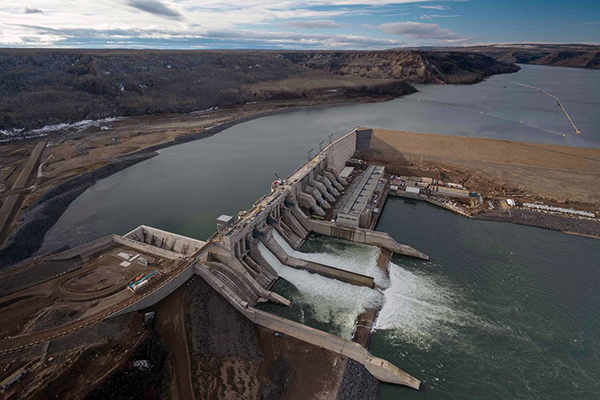
In total, Site C will provide 1,100 megawatts of capacity and produce about 5,100 gigawatt hours of electricity each year, the project websites reads, adding about eight per cent more supply to B.C.’s electricity grid.
When fully in service, Site C will provide enough clean electricity to power nearly 500,000 new homes. Construction began in July 2015.
Pattullo Bridge
While it’s evident by the towering structures the Pattullo Bridge Replacement project will be a marvel when it’s complete, there was one sore spot that developed in 2024.
In May it was announced the bridge was delayed and is now expected to open in fall 2025, which is about a year later than first anticipated.
The project began slightly before the COVID-19 pandemic in February 2020 and has since “faced significant challenges, including inflationary pressures and global supply issues related to the delivery of specialized components from around the world,” a release said.
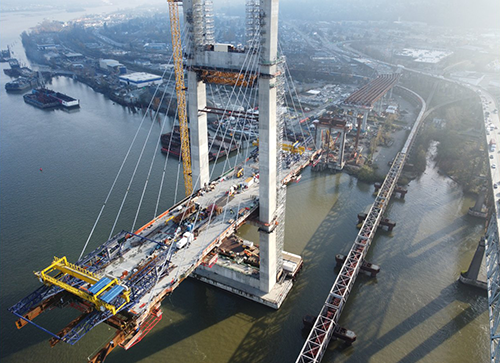
Bridge tower construction also took longer than initially expected.
Currently, girder and bridge deck work are being undertaken along with construction of new overpasses and intersections.
The Pattullo Bridge will be a new four-lane toll-free bridge that connects the communities of Surrey and New Westminster.
Broadway subway
While mostly taking place underground, the massive $2.95 billion Broadway Subway project is digging through its challenges.
It was also announced in May the subway would be delayed, opening in fall 2027. The project began in September 2020 and previously ran into delays including work to relocate major utilities and install traffic decks, while keeping traffic moving along the Broadway corridor. Tunnelling also took longer than planned as did station excavation due to a five-week concrete strike in 2022.
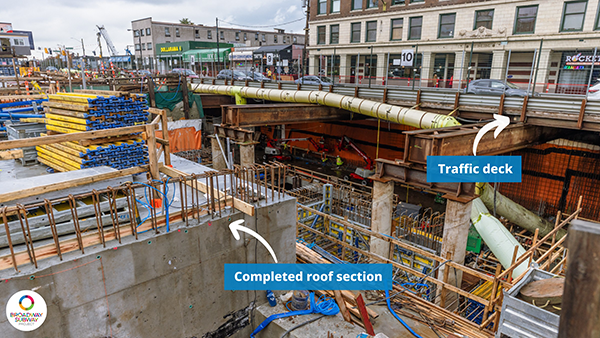
According to a recent update, the two parallel SkyTrain tunnels between six new underground stations are progressing well and crews are currently constructing the flat concrete base for the SkyTrain tracks. Track installation began on the elevated guideway in spring 2024, and the first rail will be installed inside the tunnels in 2025.
Surrey Langley SkyTrain
2024 saw major headway for the Surrey Langley SkyTrain rail project.
As of September, the cost of the 16-kilometre build has been pegged at $6 billion with three major contracts now awarded by the provincial government with major construction set to launch.
Guideway, stations and systems and trackwork contractors are now in place.
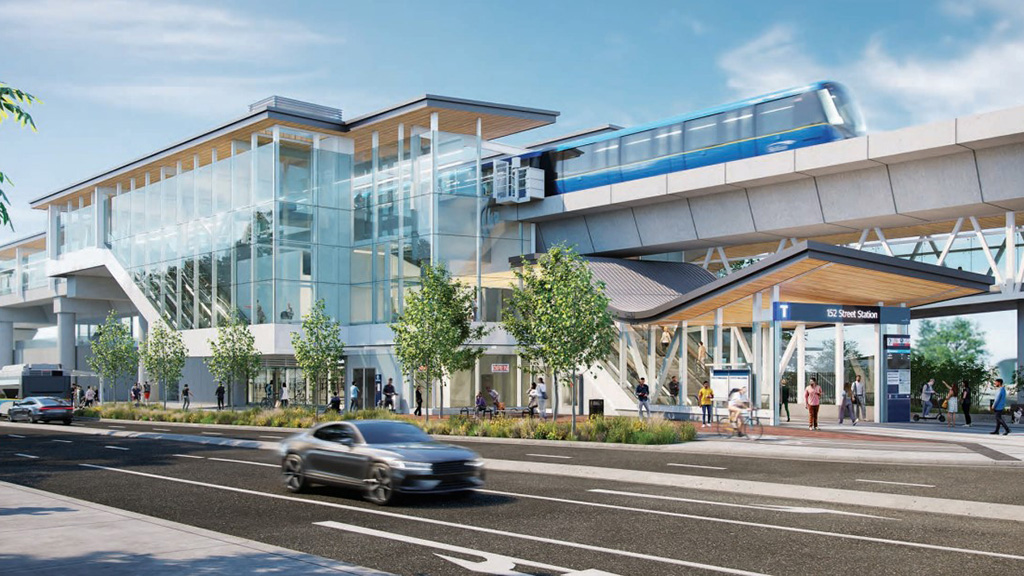
In November it was announced the public could view updated designs for eight new Skytrain stations.
Once complete, the Surrey Langley SkyTrain project will provide transportation for people in Surrey, Langley and throughout Metro Vancouver.
CRANE INCIDENTS SPUR PROMPT INDUSTRY ACTION
Safety was top of mind after several crane incidents raised alarm bells.
In March 2024, after a fourth mishap involving a crane occurred in the span of two months, WorkSafeBC and BC Crane Safety convened a meeting with crane employers and the International Union of Operating Engineers Local 115 to discuss a proposed regulation that would require employers to submit a Notice of Project for tower crane erection, climbing, repositioning and dismantling.
While most of the incidents didn’t involve serious injuries, a crane mishap at the Oakridge development in Vancouver resulted in the death of worker and mother Yuridia Flores. She died on Feb. 21 after a load fell.

These incidents followed the tragic 2021 Kelowna crane collapse, which resulted in the deaths of Cailen Vilness, Eric and Patrick Stemmer, Brad Zawislak and Jared Zook. Just one day before Flores was killed the RCMP announced they had asked prosecutors to consider charges in the deadly Kelowna collapse. No further reports or progress as been released on the Kelowna incident as of press time.
However, movement was made in terms of the regulations that were being sought earlier in the year. As of Oct. 1, the Notice of Project requirement was being enforced.
B.C. POLITICAL CLIMATE CHANGING…SORT OF
B.C.’s political landscape almost changed completely during the October election, but not quite. Initially there was no clear winner between the Conservatives, led by John Rustad, nor the incumbent NDP of Premier David Eby. But, after several recounts, Eby came out on top with a razor-thin majority.
But no matter what politician ended up taking power, the British Columbia Construction Association, along with a coalition of several like-minded organizations such as the Vancouver Regional Construction Association (VRCA), held firm prompt payment legislation had to be front and centre.
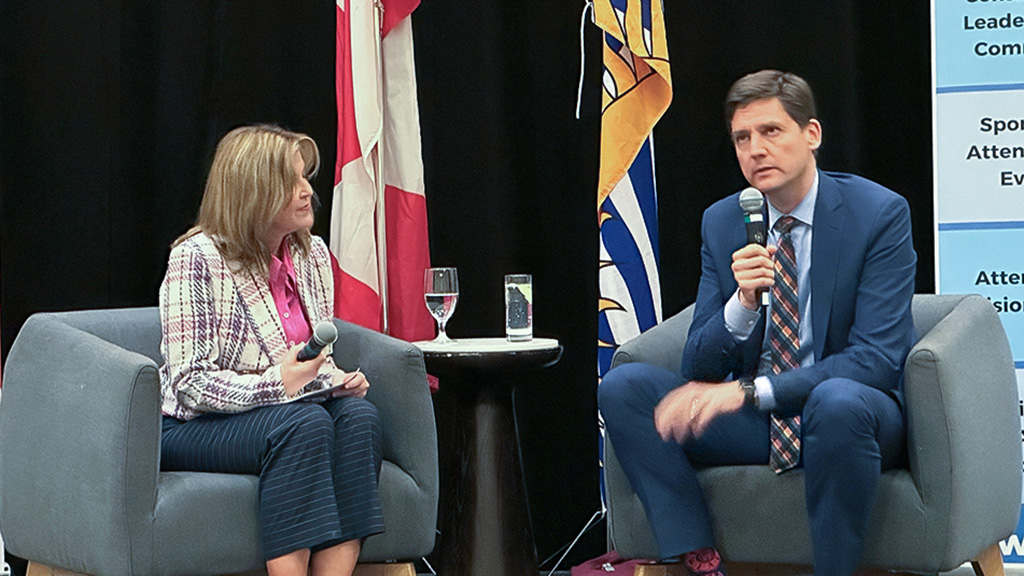
During a VRCA event before the election Eby said the province is listening and preparing to take action in the near future, but wanted to take some time to look at lessons learned in other provinces such as Ontario. As of press time, there were no significant steps on the file.
HOUSING CRISIS HAS NO QUICK FIX
It comes as no shock the nation’s housing crisis has made the list of top issues once again. While steps were made to improve housing starts across the country at all levels of government, many challenges still remain. Nationwide, to restore affordability, an additional 3.5 million housing units are needed by 2030, according to the Canada Mortgage and Housing Corporation.
While many methods were unveiled across the country such as tax exemptions; portals and tools to make the approvals process faster; incentives to bolster the desperately needed workforce; and a move towards more modular, prefabricated elements as well as housing “catalogues,” it appears it isn’t enough to make a substantial dent.
Will 2025 bring about meaningful change?
TARIFF TURMOIL JUST BEGINNING
The year is coming to an end and with it some of the most shocking government moves the country has seen in years. It all revolves around incoming U.S. president Donald Trump and what he plans to do with tariffs.
Provinces and the federal government were scrambling, convening several meetings to address how they intend to tackle the threat from Trump who said he would impose a 25 per cent import tariff on goods coming from Canada and Mexico when he takes office. But it was on Dec. 16 that the currently Liberal government’s future was thrown into question.
On the very day the fall economic statement was to be unveiled then finance minister Chrystia Freeland abruptly resigned sending the government into a panic. She pointed to an internal dispute with the prime minister over the path forward for the country.
Since then Prime Minister Justin Trudeau has been asked to resign, he shuffled cabinet on Dec. 20, NDP Leader Jagmeet Singh declared he is finally ready to vote down the government and attempt to trigger a snap election in the new year, and Conservative Leader Pierre Poilievre wrote to the governor general to try to expedite a non-confidence vote.
Where Canada’s future lies will be determined one way or another in 2025.
— With files from The Canadian Press



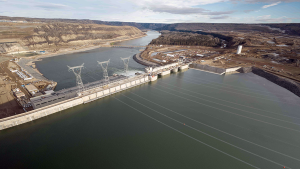

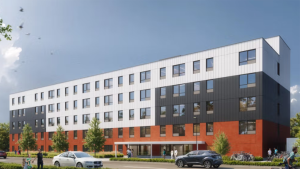

Recent Comments
comments for this post are closed